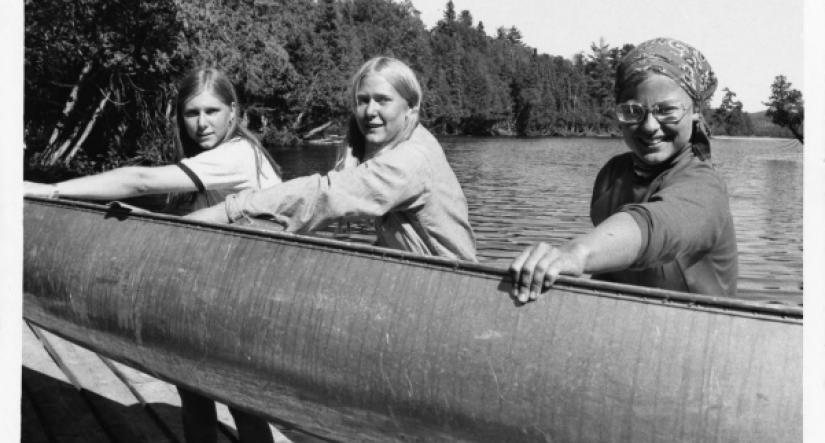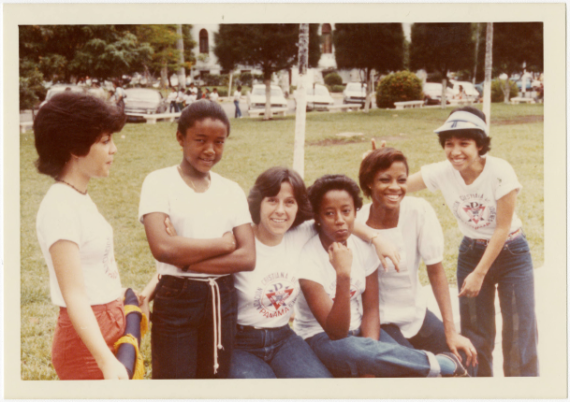
March is National Women’s History Month!
We are celebrating and reflecting on the roles women have held which strengthen communities and advance agendas for the greater good of all. In looking around our region and across the globe, we see promising leadership and vision being shown by many women.
We celebrate Women’s History Month to remind ourselves of the accomplishments of women throughout the years to our culture and society. From science to politics, it’s is a chance to reflect on the trailblazing women who lead the way for change.
Women in The YMCA
Early in Y history, women’s auxiliaries were instrumental in raising funds for the YMCA. In 1886, the first known female YMCA employee, Ellen Brown, was hired, and during WWI 5,145 women served under the YMCA banner. However, though the support of women was of vital importance to the success of the YMCA, they have not always been able to participate fully as a member. The Brooklyn YMCA is the first Y known to work with women which began as early as 1859. However, it was not until 1978 that gender discrimination was banned outright by the YMCA.
Our history shows that we have much to celebrate. Our movement has often been at the vanguard of change. Our history also shows us there is always room for improvement and new communities waiting to receive the benefit of joining the global YMCA community.
Historical Women in The Y Movement
When the YMCA was founded by George Williams in 1844, it was a societal group open only to men. Over time, the YMCA has grown to become an international movement that welcomes all people.
Throughout the Y’s 177-year history, some incredible women have helped expand the work of the Y and strengthened the Y’s ability to serve communities around the world. We are proud to honor these women today as a part of the Y’s celebration of Women’s History Month.
Addie Hunton: As part of the YMCA's massive World War I support effort, Addie Hunton was one of only three African American women assigned to serve over 200,000 segregated black troops stationed in France. After returning home in 1919, Hunton and her colleague Kathryn Johnson co-wrote an influential account of their experience, Two Colored Women with the American Expeditionary Forces, including reports of the discrimination they encountered.
Violet P. Henry: Born in Alberta, Canada, Violet Henry was the first African-American woman to be admitted to the practice of law in Canada. In 1963, she became executive director of the Community Branch of the Newark (N.J.) YMCA. Seven years later, she was appointed the director of planning for the YMCA of Metropolitan Chicago (Ill.), and later became the director of manpower, planning, and staff development. In 1976, Henry became the first woman to be named to a top management position on the national staff as executive director of the Organizational Development Group. She was responsible for personnel management, corporate planning, and development projects. Henry served as president of the YMCA Association of Professional Directors (APD) and vice president of the World Association of Secretaries. She provided leadership for numerous national and international commissions and committees that worked effectively for the rights of women and minorities.
Winifred Colton: Fighting to improve the status of women in the YMCA, Winifred Colton began her extensive YMCA career as women’s and girl’s work secretary in three YMCA of Metro Chicago branches over the course of twelve years. In 1957, the YMCA's National Council’s statement of purpose no longer applied to “males only,” and Colton became the first woman professional on the national staff. She served over a million constituents enrolled in organized groups and activities as secretary for women’s and girl’s work.
Willie Aveling: Following her involvement as the physical director at the Atlantic City YWCA, Wilhelmina “Willie” Aveling was the first woman on the metropolitan staff at the YMCA of Chicago, tasked to study work with women and girls and institute a Women’s Program. Over the course of almost three decades, Aveling improved programs for women and girls, such as introducing Danish gymnastics and summer day camps, and implementing proper standards for women’s and girl’s programs, which were to be led by women and under the jurisdiction of a women’s committee. She also created manuals on leadership and management and personally evaluated every Chicago YMCA girls’ resident camp. Aveling was the first chairman of the Association of Secretaries Women and Girls Section and, likely, the first Women and Girls Secretary. On June 5, 1987, shortly after her death, Aveling was the first woman inducted into the YMCA National Hall of Fame.
